Posted on 9/13/2022
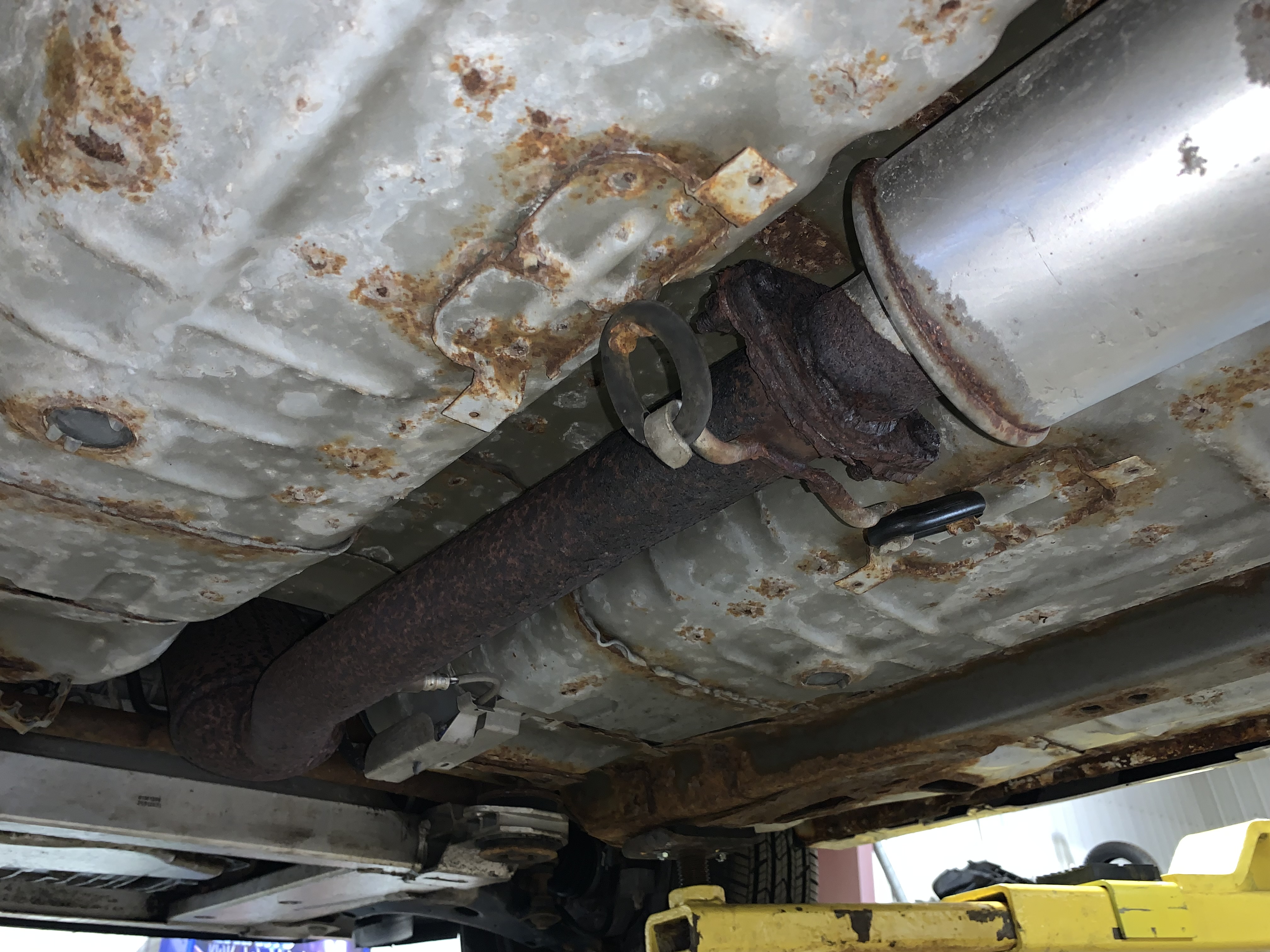
With today’s changing automotive environment, many people question repairing their vehicles. Your car’s exhaust system does so much more than keep your vehicle quiet. It helps your engine run, reduces emissions, and directs exhaust fumes away from the cabin. The exhaust system is closer to the ground and more vulnerable to moisture and debris from the road. Repair costs on damaged or worn-out exhaust components vary. But waiting too long to make these repairs can be very expensive in the long run. Here are some items to keep in mind if you think your car, truck, or SUV is experiencing exhaust issues. RUST When any type of water or vapor sits in your exhaust system for too long, it causes a corrosive effect. Water reacts with the iron in steel and creates iron oxide called rust. If you often make short trips in your car, the moisture in the exhaust system cannot get hot enough to vaporize. The standing water in your exhaust sys ... read more
Posted on 8/17/2022
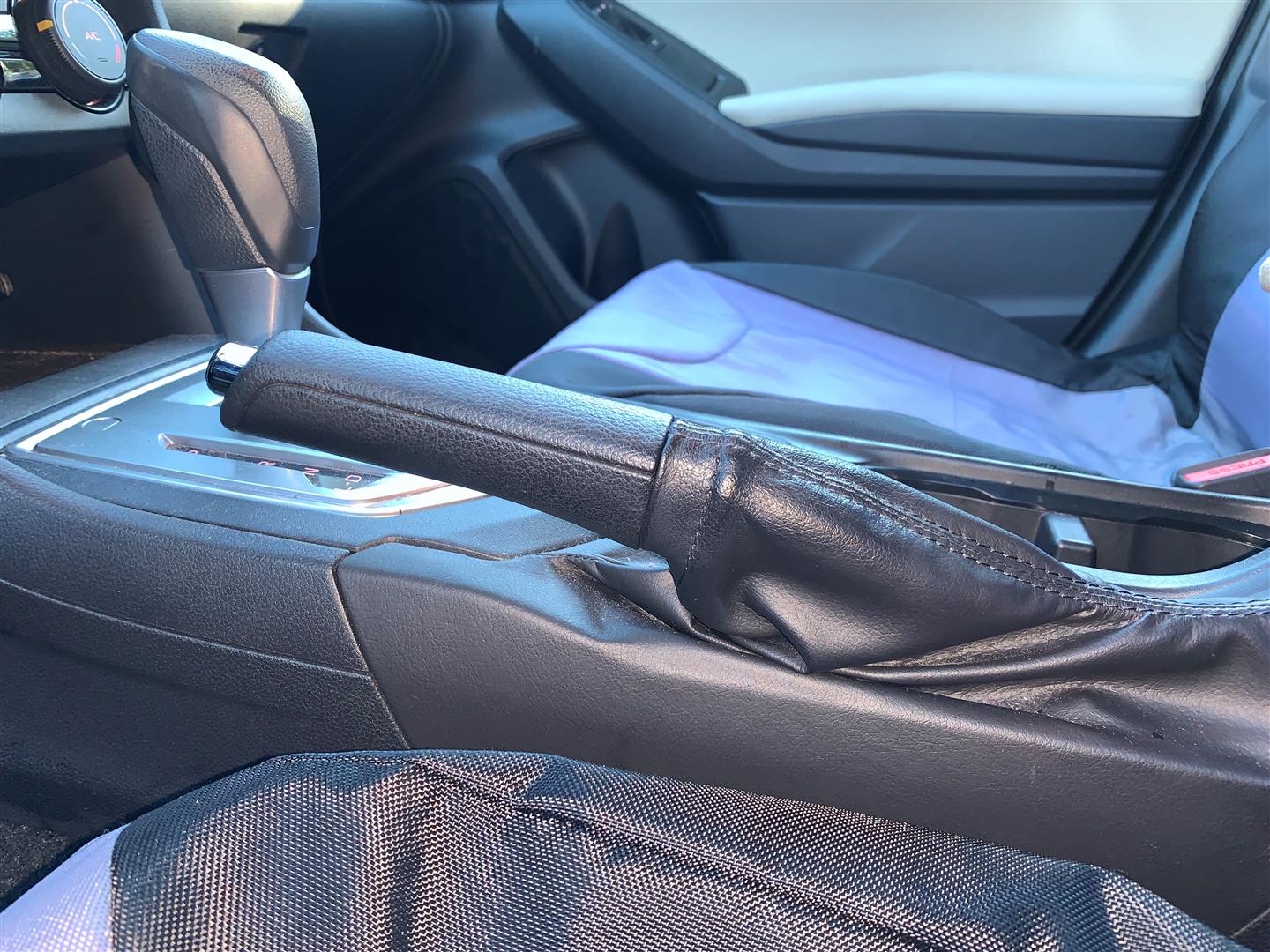
Out of all the buttons, levers, and switches in your vehicle, the parking brake is the feature that you most likely commonly overlook. The parking brake is also known as the emergency brake, e-brake, or handbrake. And is more important than you think. Find out how often you should be engaging your e-brake and why. How Does The Parking Brake Work? The parking brake is part of your vehicle’s overall braking system. It is a vital part of keeping your car from moving after you’ve parked it. The emergency brake was originally designed to be the secondary braking mechanism that would stop your vehicle if your main braking system failed. The parking brake will press against your rear brakes with less force than the primary braking system. Many people use the parking brake to keep their car in place when parked, especially on hills or steep inclines. When you shift your car into “Park”, you engage a device called the parking pawl. The pawl is a ... read more
Posted on 8/4/2022
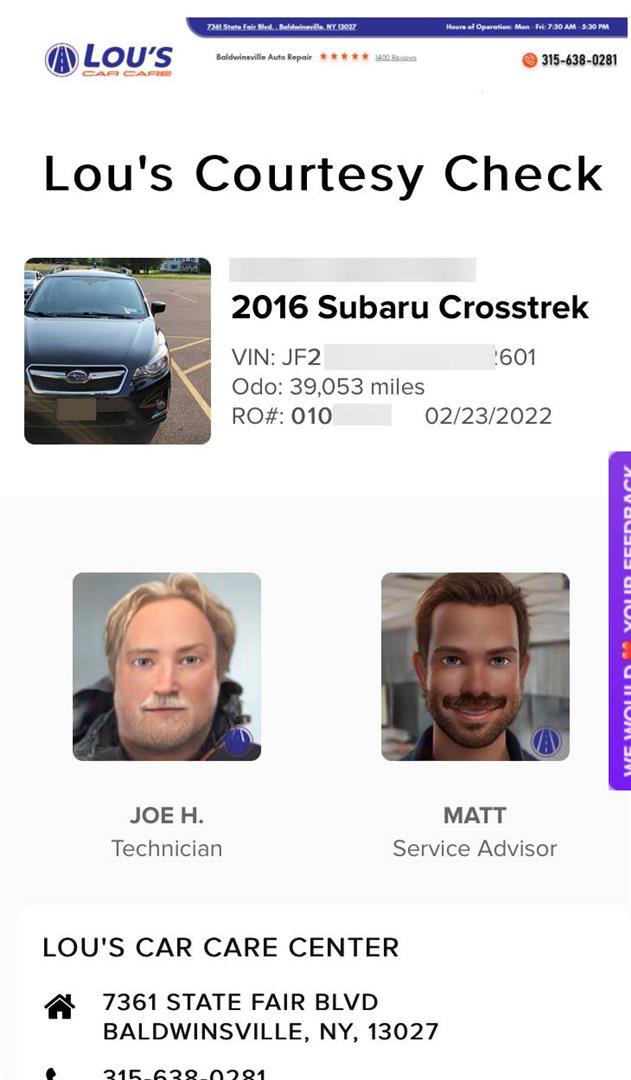
Technology is advancing every day, especially in the automotive industry. By staying ahead of the curve, we are able to provide you with exceptional automotive service. That is why we offer Digital Vehicle Inspections (DVI). The DVI is like a report card for your vehicle. It shows you the complete condition of your car. The DVI also includes photos, so you can see what we see. And keep you informed every step of the way. We want to educate you on the inner workings of your car so you can make informed decisions on the repairs that may need to be done. Our highly skilled technicians use tablets to digitally inspect your vehicle. They visually look for areas that may need to be repaired or replaced. The technicians are able to take pictures, recommend work that may need to be done and add detailed notes to explain their findings. Some photos ... read more
Posted on 7/27/2022
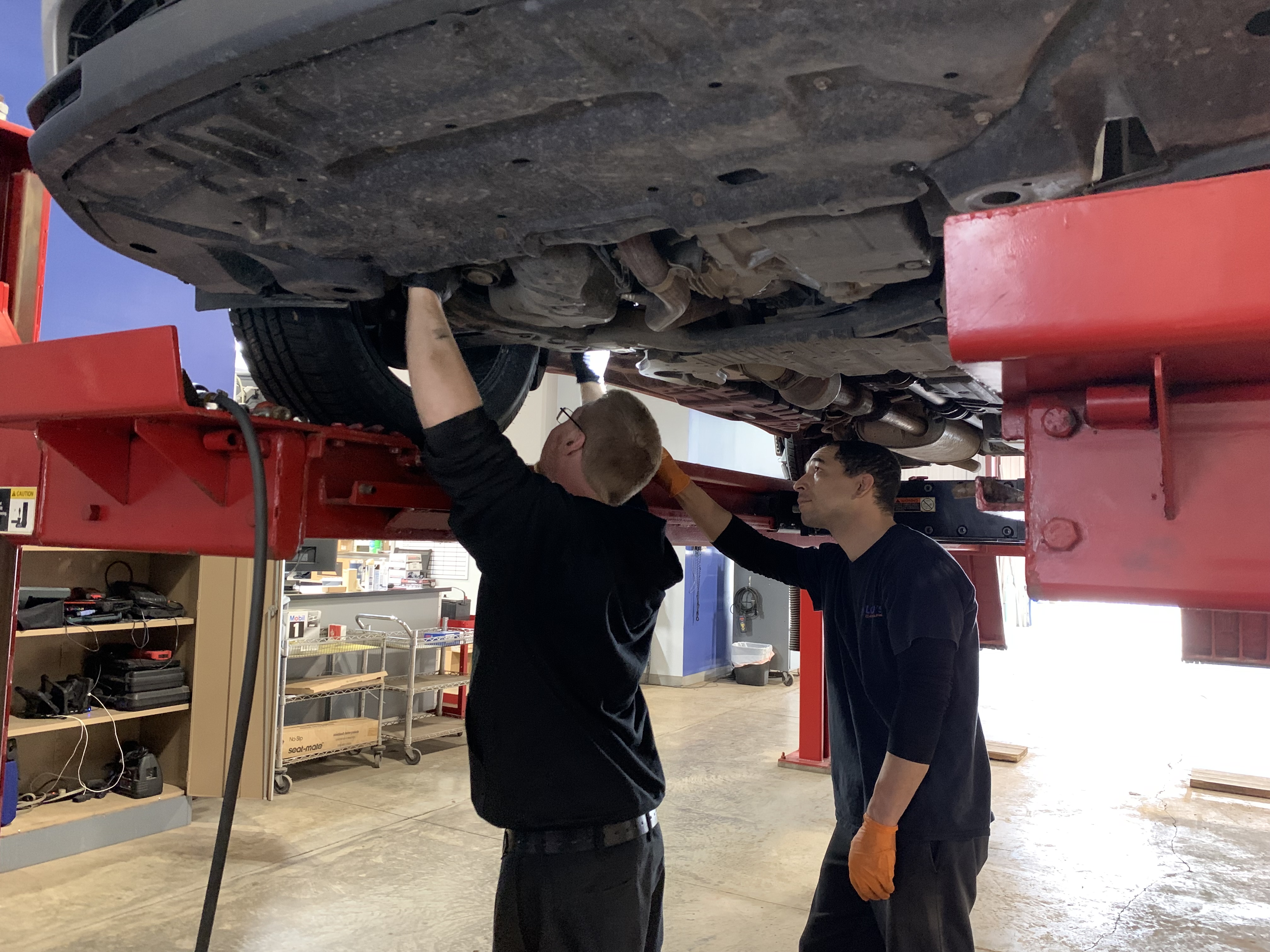
, A clunking, rattling, or squeaking noise from your front end while driving can be annoying and unnerving. Oftentimes, this noisy symptom means there is a problem with your vehicle’s suspension system. These sounds typically occur when driving over uneven surfaces, bumps, or potholes. Here are some of the potential causes for the clunking noises you hear while driving. Loose Control Arms Control arms connect the frame of the vehicle to the wheel hub assembly or steering knuckle. They move up and down with a spring when your car hits a bump or road irregularity. Control arms are part of the suspension system. They allow the tires to maintain full contact with the road at all times. One of the earliest signs of a loose or damaged control arm is hearing a clunking or popping sound when you drive over uneven roads. This sound can also be heard when you speed up or slow down while driving. Worn Ball Joints Ball joints are one of t ... read more
Posted on 6/30/2022
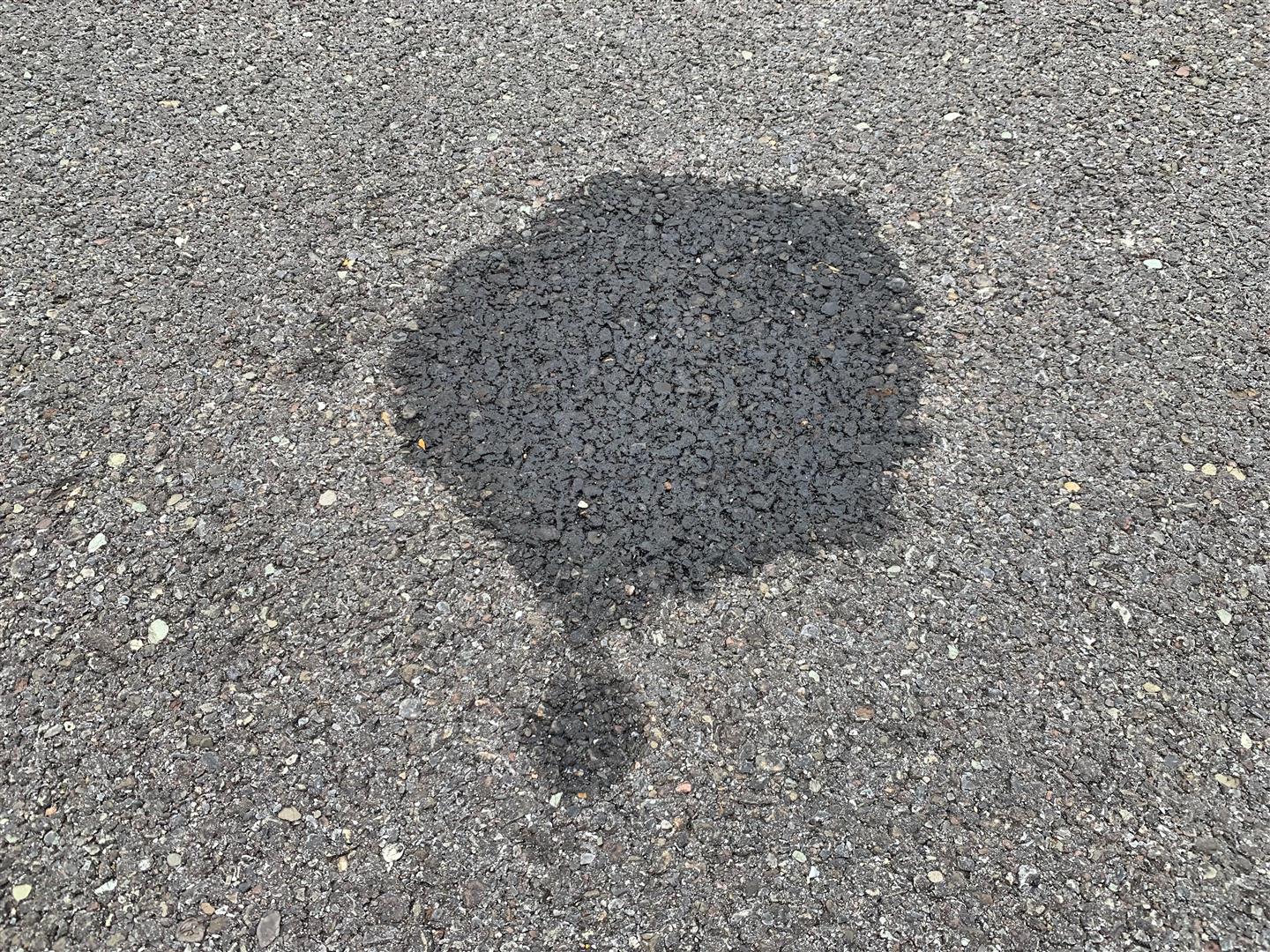
Regular oil changes and scheduled maintenance are important in keeping your car, truck, or SUV in top shape. But do you know what the consequences are when you don’t keep up with your oil changes? Here are the top 3 signs your vehicle may have an oil leak. Motor oil moves through a running engine and allows all the parts and components to work together smoothly. Your engine oil becomes dirty and filled with contaminants over time. This contaminated oil will begin to cause the engine parts to rub together and wear down. Motor oil will eventually make its way through any pockets, holes, and broken seals caused by the friction of the dirty oil. And will begin leaking out. Signs Of An Oil LeakDark Brown/ Black Puddles Under Your Car Dark fluid dripping from un ... read more
Posted on 5/25/2022
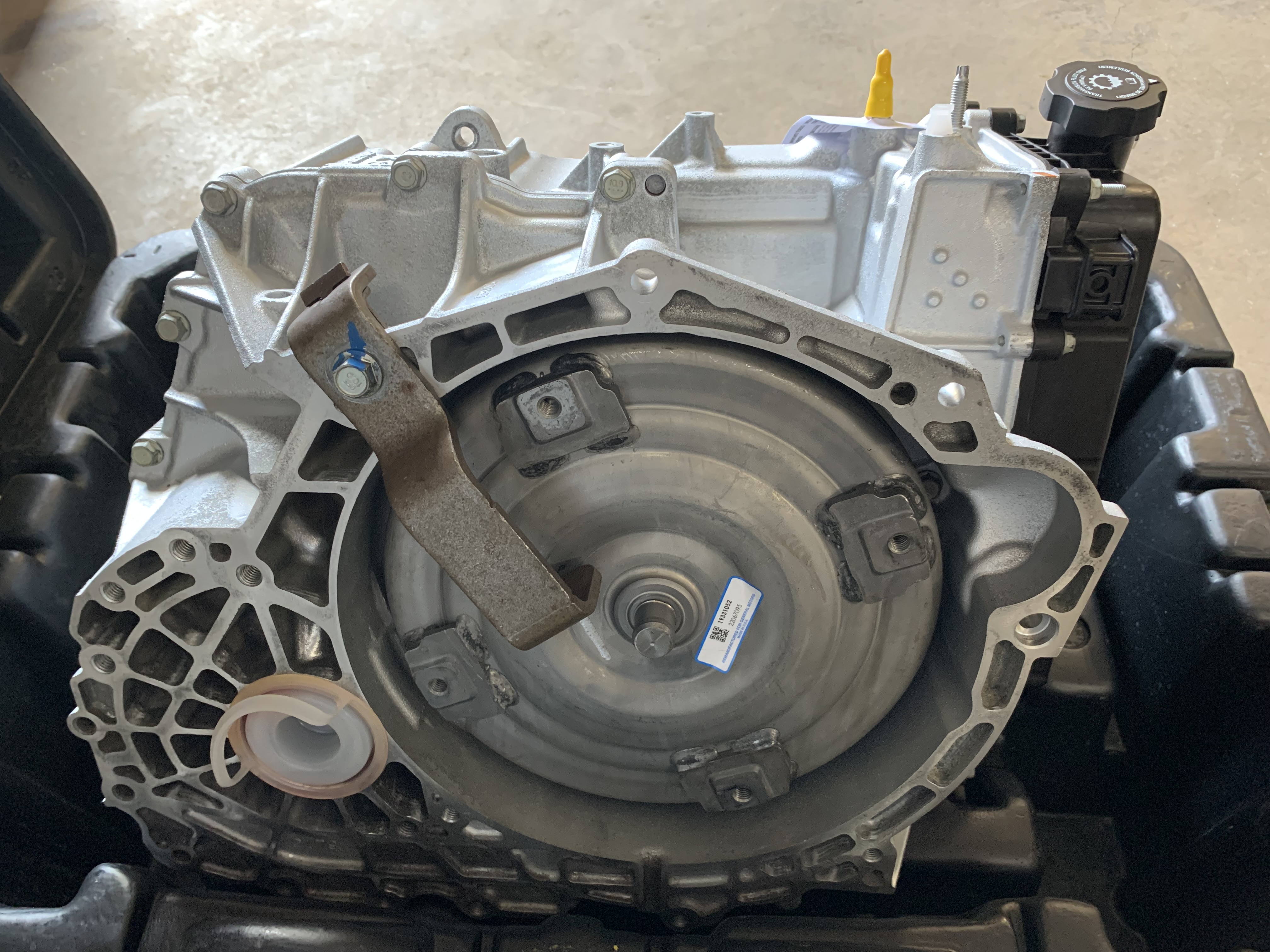
One of the most common transmission issues you can have is a slipping transmission. Slipping occurs when the transmission tries to change gear but falls back into the gear it was previously in. Or drops into neutral. Slipping doesn’t necessarily mean that your transmission is about to fail. But it is a sign that it is in serious need of service or repair. Schedule an appointment as soon as you can with a mechanic who can look into your issue. Symptoms of A Slipping Transmission The source of a transmission slip can be caused by various reasons. Diagnosing the issue can be a challenge, but here are some common signs to look for: Automatic Transmission Transmission tries to upshift, then falls back into a lower gear Transmission refuses to upshift Hard/rough gear changes Unusual noises when shifting Engine RPMs increase when stepping on the gas, but the vehicle speed doesn’t Check Engine Light is on Manual ... read more
Posted on 5/24/2022
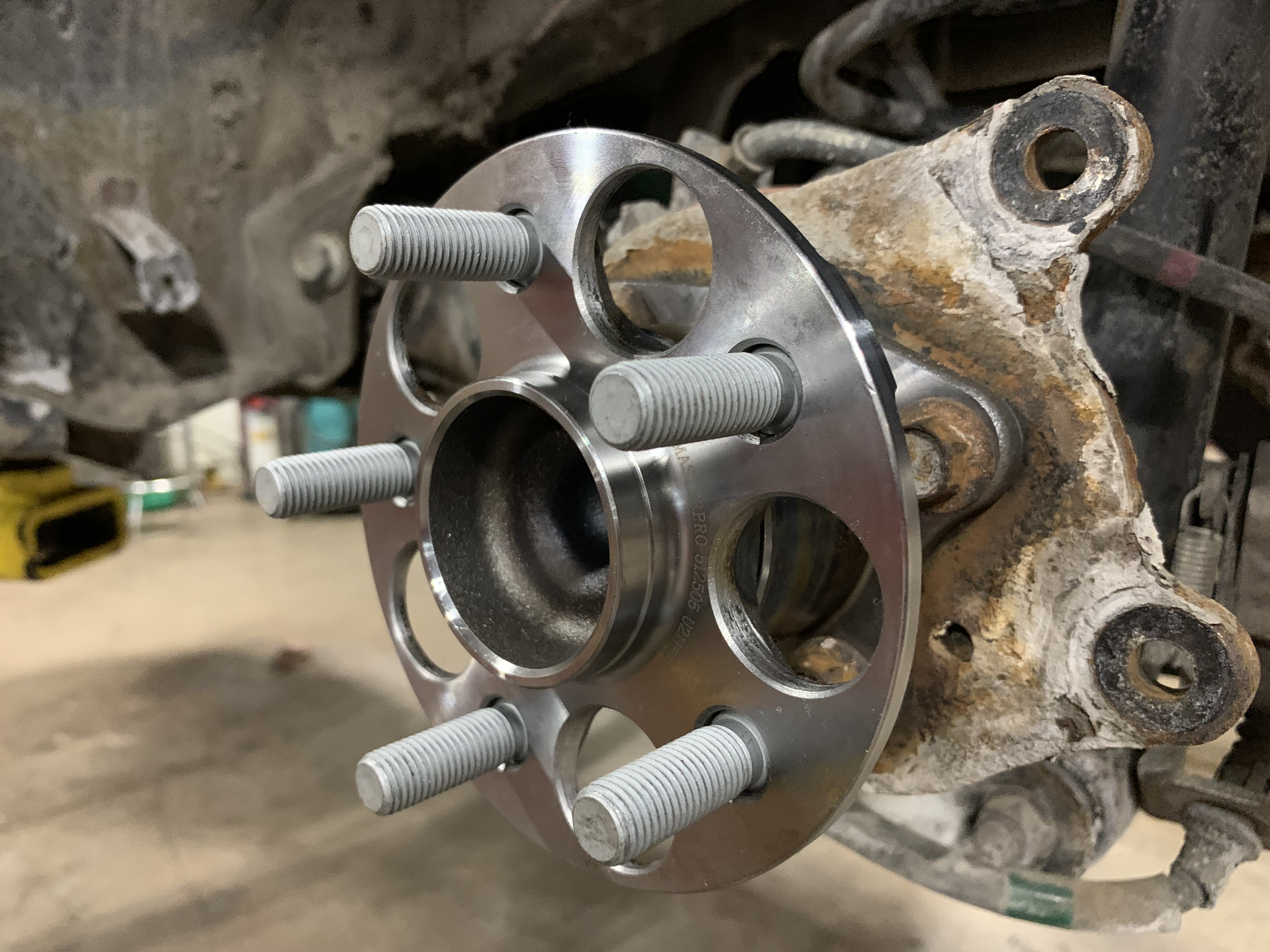
A wheel bearing is an important part of a vehicle’s braking, steering, and suspension systems. It is the component that connects the wheel to the axle and allows the wheel to turn. A wheel bearing is a set of steel ball bearings or tapers that are tightly packed in a grease-filled metal ring. They are engineered to support the entire weight of the vehicle and enable the wheel to rotate smoothly with minimum friction. Why Do Wheel Bearings Fail? Wheel bearings can fail for a variety of reasons and can also be damaged. They are especially vulnerable if you hit a tall curb, pothole, or speed bump at a high speed. If water, road salt, or mud gets past the waterproof seal and touches the bearings, it will contaminate the grease and cause the bearings to wear down and break prematurely. Top Warning Signs Your Wheel Bearings Need ReplacementNoise While Driving ... read more
Posted on 5/2/2022
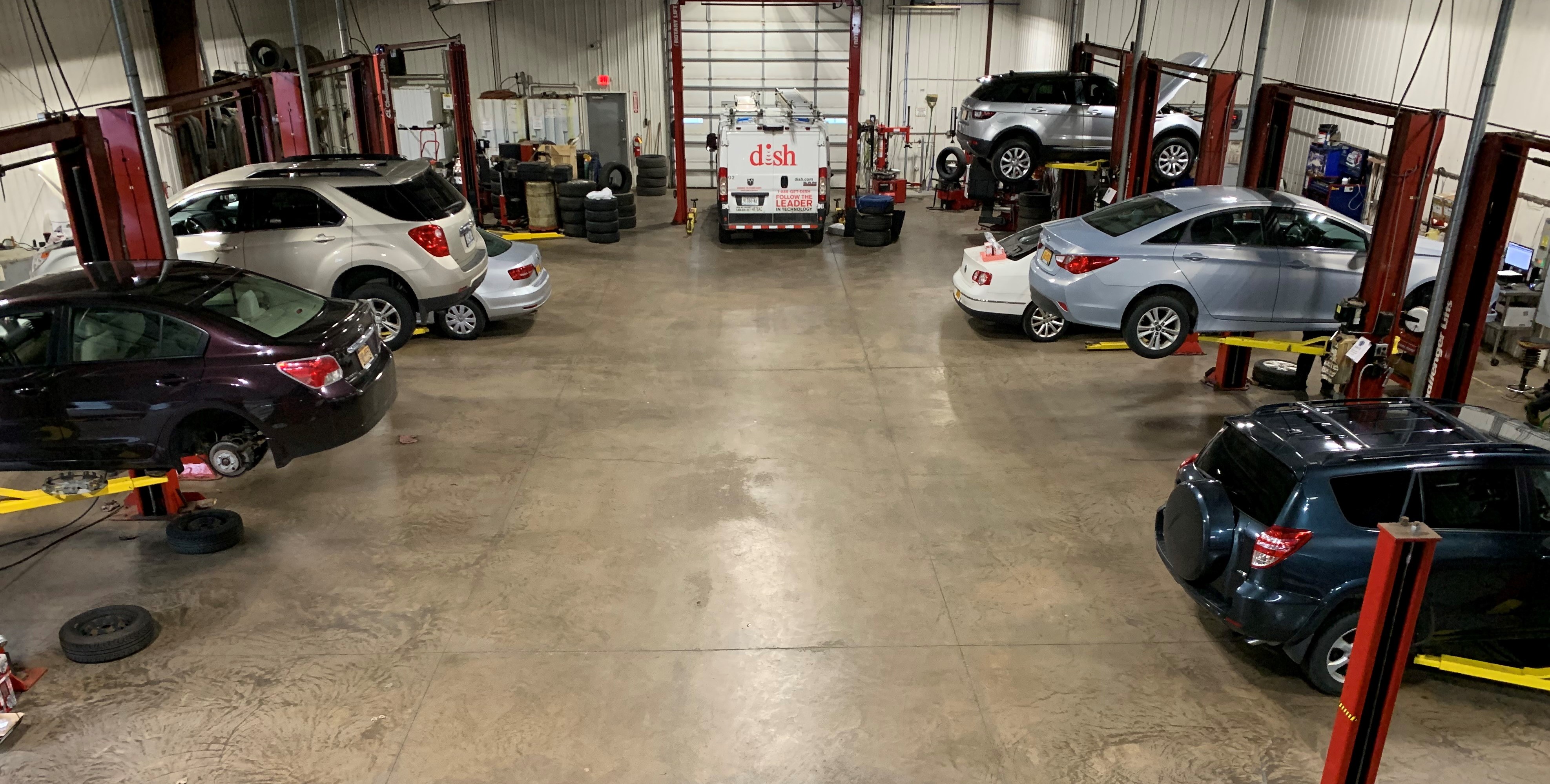
Vehicle maintenance at regular intervals helps keep your car in proper working order. And can prevent expensive repairs down the road. Even the most well-maintained cars will experience unexpected service problems. But it is better to be proactive rather than reactive. Keeping detailed service records can also help boost your car’s value when you decide to sell it or trade it in. Failing to follow preventative maintenance guidelines could even void your car’s warranty. Use this guide to learn about common maintenance recommendations. 3,000 – 5,000 miles – Oil Change An Oil Change is the most standard maintenance service for every car owner. An oil change every 3,000 - 5,000 miles is essential for keeping the key parts of your engine working properly. We recommend having your tires rotated every 5,000 miles to ensu ... read more
Posted on 4/27/2022
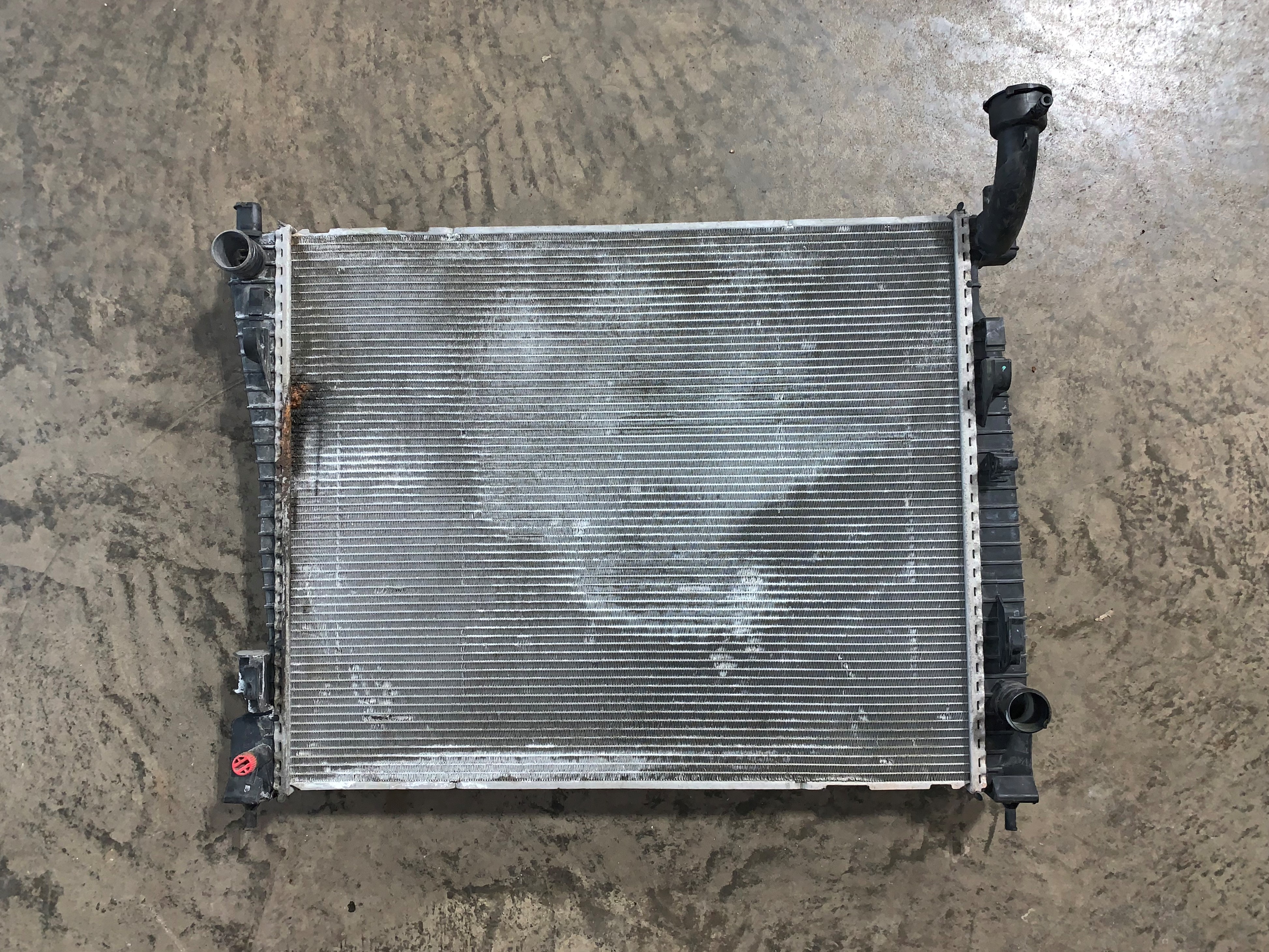
The Cooling System in your vehicle protects your engine from overheating. The radiator helps to transfer heat away from the engine. And allows the coolant to continue circulating throughout the rest of the system. The coolant helps to lubricate parts and absorb heat. As the coolant circulates through the system, it also picks up dirt and grime. A radiator flush will help rid your car of those contaminants. Our mechanics remove the old coolant and anti-freeze from the system, first. Then, cleaning solutions added to the system remove dirt and impurities. Finally, we add a new and fresh coolant mixture back into the system. If your engine's temperature gauge is higher than normal you may be due for a radiator flush. A broken radiator can leave you stranded. Preventative maintenance will protect your vehicle from having major issues on the road. Lou's ... read more
Posted on 4/12/2022
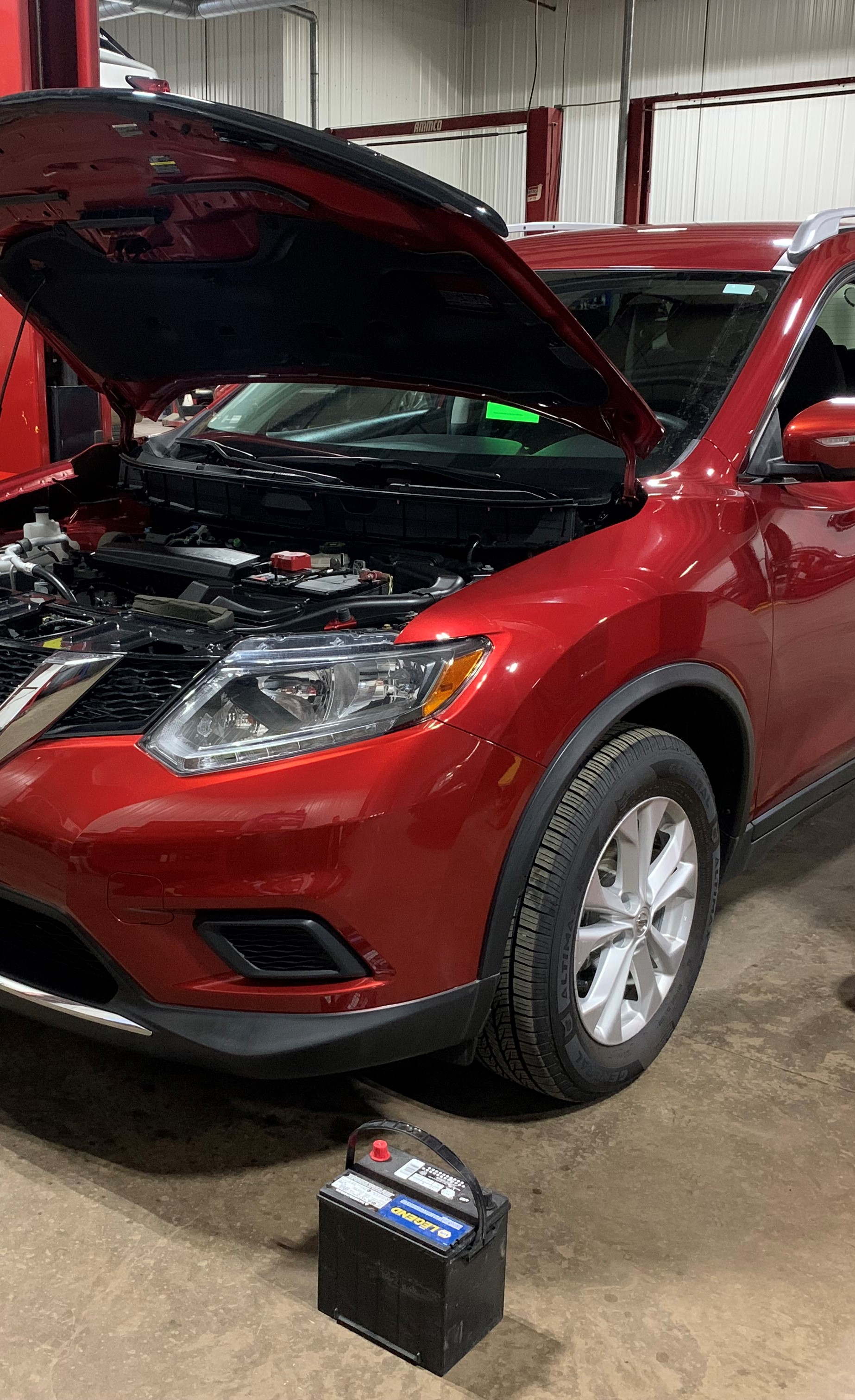
Why Won't My Car Start? You never realize just how important your vehicle is until it doesn't start. You use it constantly to drive to work, pick up the kids from soccer practice, get groceries, and so much more. So when your vehicle suddenly stops working- you PANIC! "Why Won't My Car Turn On?", you shout! There are a lot of reasons why your car won't turn over, but some are more common than others. Here are the top 3 reasons why your car may not start. Dead Battery A Dead Battery is the most common reason why a vehicle won't start. The battery is responsible for providing electrical power to your entire vehicle and its electrical components such as the lights, radio, and so on. The alternator charges your battery while your car is running. If your battery is not adequately charged, you will not be able to start your car. So ... read more